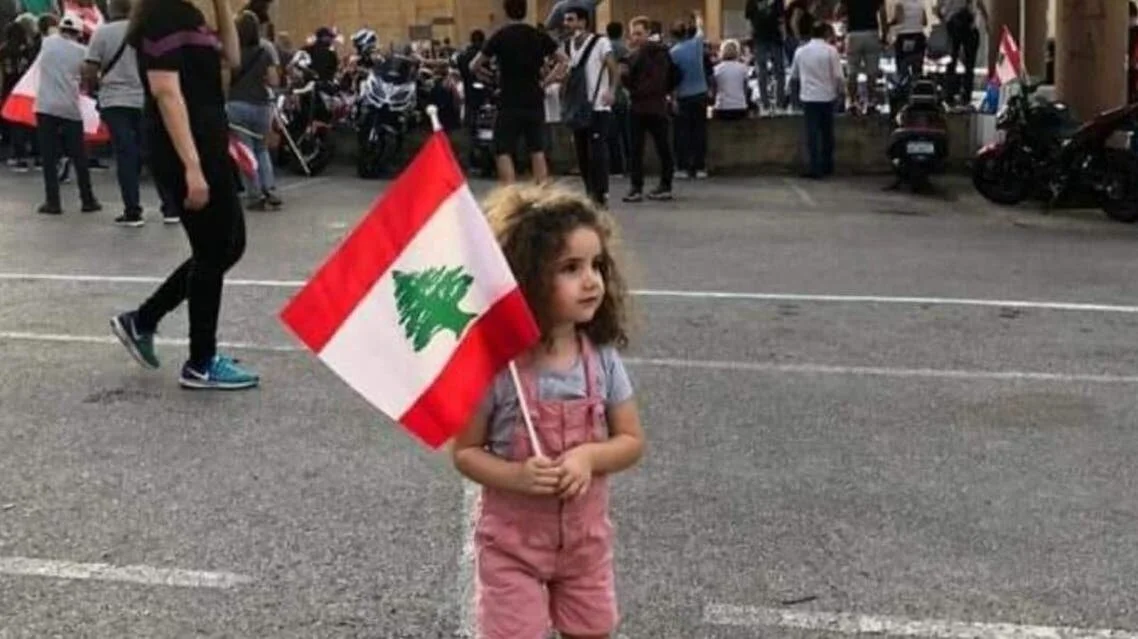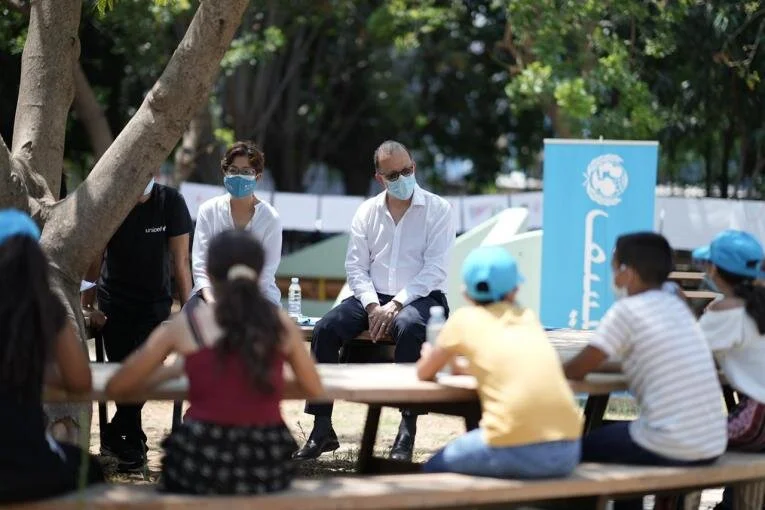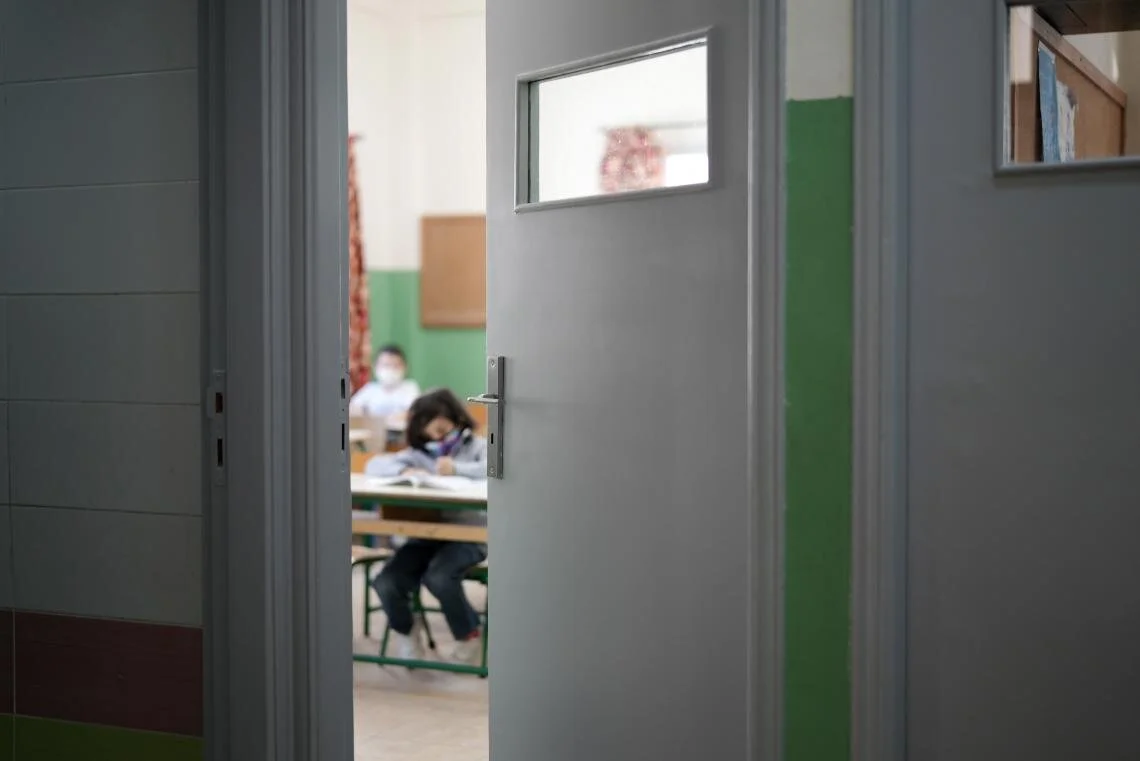After the Beirut Port Explosion, Lebanese Children are in Grave Danger
UNICEF Warns: More than 30% of Children Go to Bed Hungry
©Sky News Arabia
Report by Elia Nasrallah
Translation by Mary Yahchouchy
“The situation has been worsening ever since”, these are the words UNICEF Regional Director for the Middle East and North Africa Ted Chaiban used to describe the living conditions in Lebanon today. Ever since that tragic moment, at 6:07 pm, the Lebanese capital hit rock bottom and what’s left of this country is awaiting certain doom.
Alexandra Naggear, victim of Beirut blast
In short, and without trying to sugarcoat the truth, Lebanese children are not okay. 600 thousand children fell victim, whether directly or indirectly, of the unfortunate August 4,2020 explosion. This was the statement of Chaiban in the press briefing he held on August 3 in the Karantina public garden. We should note that the UNICEF press release stated that ‘the explosion killed 200 people, among them six children, and injured more than 6,500, including 1,000 children.’
Many are the kids who survived the explosion but are still living in constant despair. However, how are families supposed to protect them and their rights if they are failing to provide their most basic needs?
Numbers are a life proof of the dire life conditions in Lebanon. Believe it or not, 30% of children go to bed hungry because 77% of families lack the financial means to buy the food they need, among these families are Syrian refugees. UNICEF is sounding the alarm through these number in a recent report based on an survey conducted in July with 1,200 Households affected by the explosion. Therefore, UNICEF warns about the danger surrounding our children due to worsening crises and parents’ inability to provide basic daily needs.
What about this collapse and its consequences? What we know is that we cannot measure it with numbers. Therefore, UNICEF is concerned about the future of 1.2 million children in Lebanon, 64% of which need immediate help. The briefing states that according to an assessment conducted in April, 2021, 40% of children live in families without a provider who earns the necessary wage to support them and 77% of these families are not receiving any social assistance.
©UNICEF2021/Fouad-Choufany/Lebanon - UNICEF Regional Director for the Middle East and North Africa Ted Chaiban
These numbers continue to shock us, as the survey shows that two out of three families, around 68.6% did not receive any health care or medication since a year now. 30% of children did not receive any primary health care and 76% of families were affected by the crazy rising medication prices.
The water resources are also decreasing. Ted Chaiban spoke about a water crisis due to failure of supply systems… 71% of people in Lebanon (4 million person) struggle to obtain water, including one million refugees. He warns of a gradual shortage in water supply all over the country in the 4 to 6 upcoming weeks should the fuel shortage and economic crises continue.
Chaiban stressed: “Children in Lebanon must be a top priority, their basic rights respected and at hand. This includes the basics of health, nutrition and being protected from violence including abuse and exploitation. Every child deserves this and certainly every child in Lebanon deserves this too!”
The MENA Director calls on Lebanese leaders to form a government capable to bring the country on the path to recovery. He also demands a transparent and credible investigation to determine the cause of the explosion “and hold those responsible for the blast accountable and bring justice to affected families including those who lost their loved ones… Meanwhile, standing idle is not an option.”
On the other hand, UNICEF spokesperson Juliette Touma describes the continuing negative consequences of the blast on children and families, as many are living in temporary residences amidst psychological damages manifesting in fear, nightmares, and constant crying… she points out that these consequences are worsening due to aggravating economic and political crises and the spread of the Coronavirus in the country.
UNICEF is exerting great efforts to protect children and preserve their dignities. It launched the “Haddi” program to assist vulnerable families financially for them to provide their Lebanese, Syrian, and Palestinian children with their basic needs. According to Touma, these financial assistances are supposed to encourage families to keep their children in school, so they don’t have to send them to work in farms or industries or cafes to provide their needs.”
©UNICEF2021/Fouad-Choufany/Lebanon
However, weren’t schools affected by the blast as well? UNICEF holds the answer to this question: 160 schools in Beirut were damaged by the explosion, which affected 85,000 children, adolescent, and youth registered in private and public schools for vocational or technical education. UNICEF cooperated with UNESCO and other partners to rebuild and rehabilitate schools for them to be able to open their doors for students when needed.
Chief of Education in UNICEF Atif Rafique said that the August tragedy increased the risk that children, especially the most vulnerable, would not be able to return to school and learn. We needed to exert every effort to rehabilitate schools as quickly as possible amid the chaos and devastation that surrounded them.”
Amid worsening life conditions, rising daily stress and violence after the Beirut port explosion, families stand before an uncertain future and burdening problems affecting their children’s lives and comfort. They do not feel safe anymore, as a girl tells UNICEF: “every time a plane flies through the sky I remember how I felt the day of the explosion…” A mother says: “On the August 4 explosion, we were injured, displaced, and we almost lost everything, all that drove us and other families to reach rick bottom… If it wasn’t for UNICEF and Himaya, we wouldn’t have had anyone to turn to for help. We put our only hope in God.”
Communication and Public Relations Department




